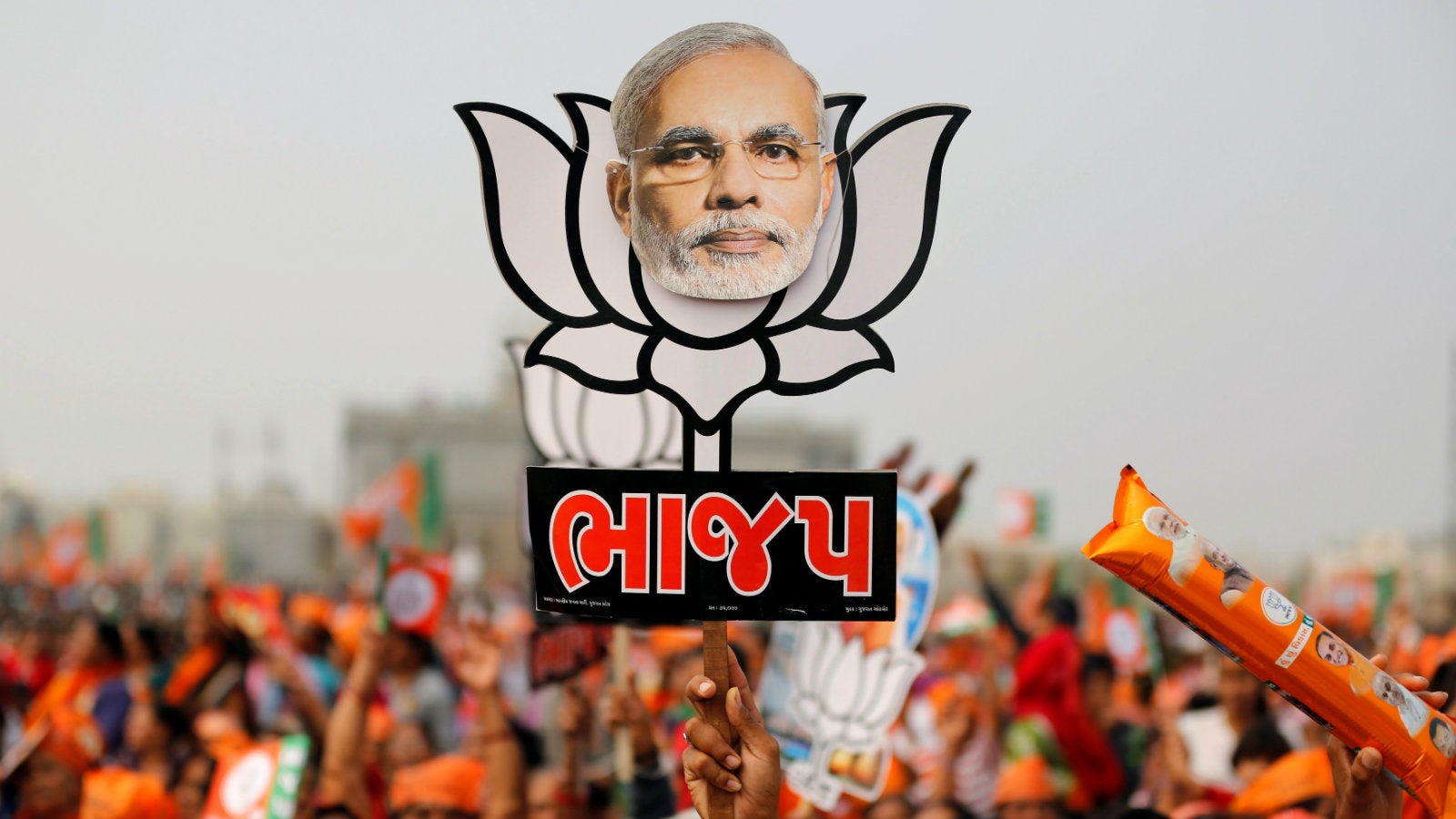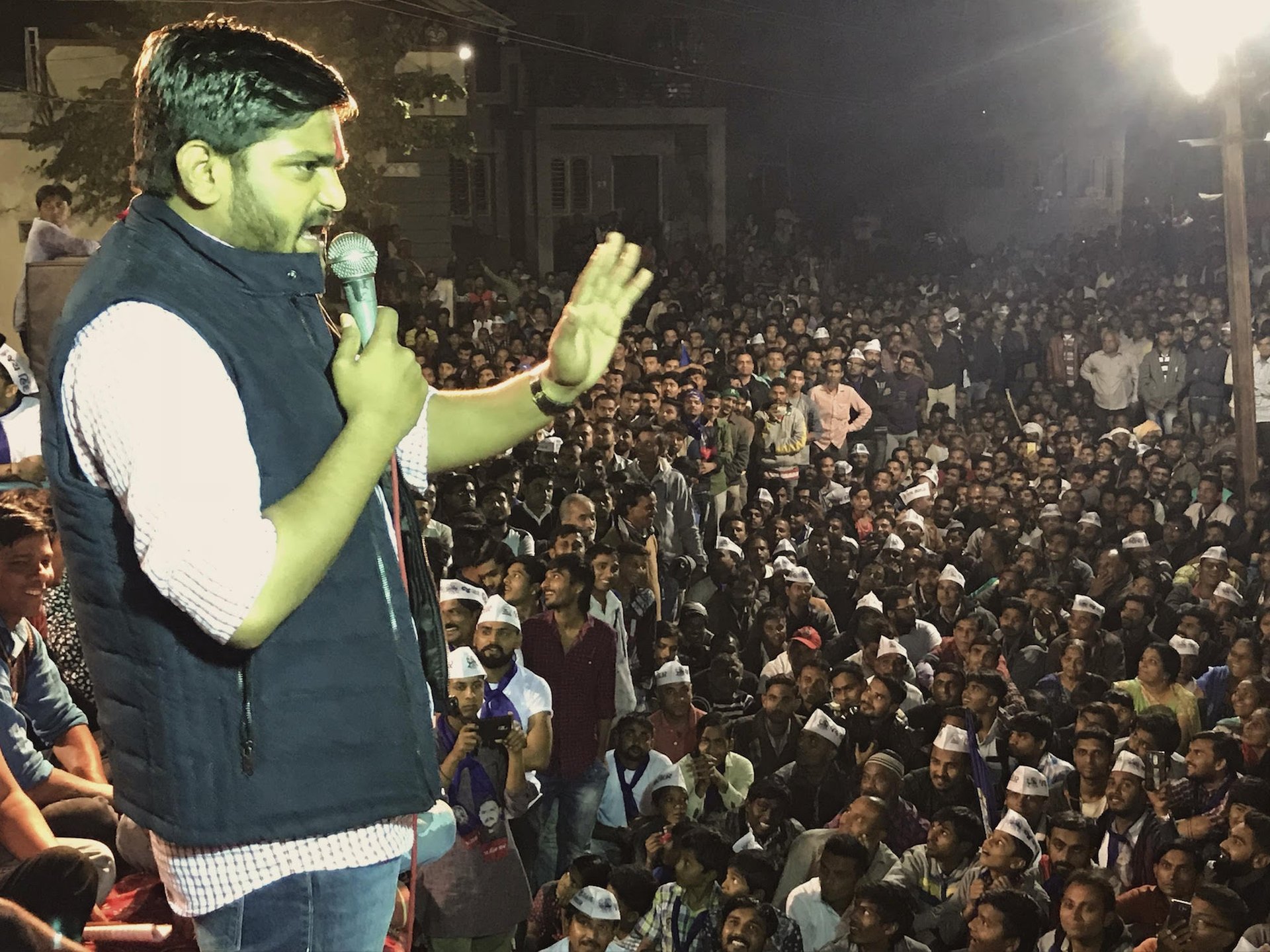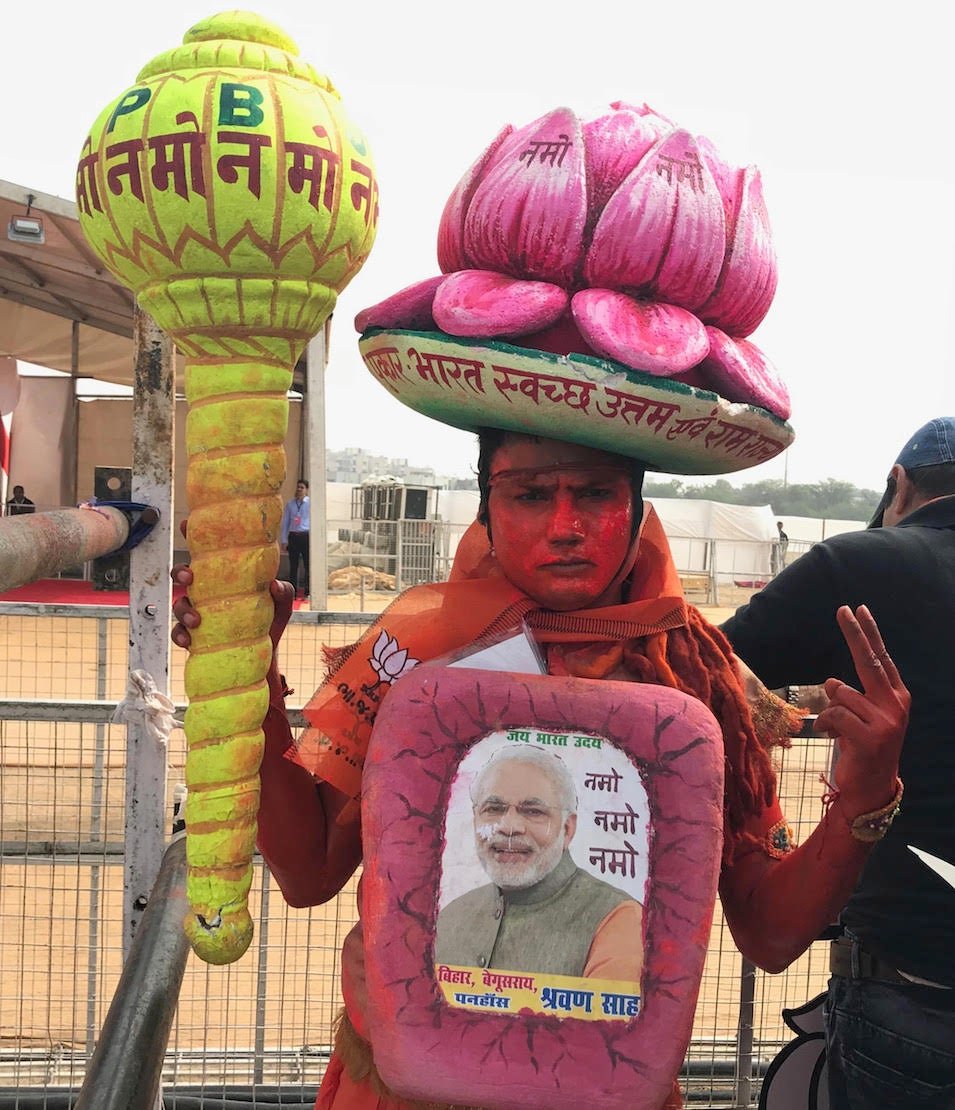The nasty Gujarat campaign has left Narendra Modi’s image sullied
“If a lawyer fights a case to earn a living, I have no problem with that. Apan su vanda nathi,” said prime minister Narendra Modi, in a matter-of-fact way, like a consummate performer who starts on a low key to build momentum. Most of his supporters already knew who he was talking about. “Kapil Sibal,” volunteered some in the crowd that had gathered in Kalol in Gandhinagar district, 25 km north of Ahmedabad.


“If a lawyer fights a case to earn a living, I have no problem with that. Apan su vanda nathi,” said prime minister Narendra Modi, in a matter-of-fact way, like a consummate performer who starts on a low key to build momentum. Most of his supporters already knew who he was talking about. “Kapil Sibal,” volunteered some in the crowd that had gathered in Kalol in Gandhinagar district, 25 km north of Ahmedabad.
It was Friday, Dec. 08—three days after Sibal had asked the supreme court to defer the hearing of the Ayodhya dispute to 2019. For three days, on the election campaign trail in Gujarat, Modi had repeated the same pitch: that Sibal was not just a lawyer, he was a senior Congress leader, and his comments showed the Congress did not want the resolution of a dispute dating back to the 19th century. No matter that the Congress had distanced itself from Sibal’s remarks, and Sibal himself had clarified he was not representing the Sunni Waqf Board, the Muslim organisation that is a litigant in the case, Modi had seized the opportunity to introduce one of India’s most communally polarising subjects into the Gujarat election, and showed no signs of letting go.
“Chalo, you are not the lawyer of the Sunni Waqf Board, but at least tell us,” he said, stiffening his expression, raising his pitch, “are you the lawyer of those wanting the Ram Mandir or those wanting the Babri Masjid?”
The crowd broke into applause.
The Ayodhya dispute is just one of the many communal flags that the prime minister has waved in the final week of Gujarat elections. He has used a wide range of dog-whistles to insinuate that the Congress is a party of Muslims, and hence untrustworthy for Hindus. He even went to the extent of accusing former prime minister Manmohan Singh of colluding with Pakistan to ensure his defeat in Gujarat. While Singh took strong objection to Modi’s remarks, the Congress in Gujarat has largely failed to fend off the attacks on both itself and on Muslims. It has now fallen on a 24-year-old caste leader to talk like a statesman.
“They used to teach us earlier—Hindu Muslim Sikh Isai Bhai Bhai (Hindus, Muslims, Sikhs and Christians are brothers)—now they say Hardik means Hindu, Abdul means Muslim,” said Hardik Patel, the young man who rose to prominence in 2015 as the leader of the Patidar caste. He mobilised large protest rallies that year to demand reservations for the dominant landowning caste. He was arrested, jailed, and outlawed from Gujarat for months, but that has not stopped him from vigorously campaigning against the Bharatiya Janata Party which has been in power in Gujarat for 22 years.
“Think about it,” Patel said. “At election time, they should have been talking about the vikas (development) they have done in the past 22 years, instead they are still talking about the same old issue of Ram Mandir.”
Patel was addressing a gathering in Dholka village, 40 km south of Ahmedabad, on Friday night. Unlike the Modi rally in the afternoon, which was enormous—the buses parked outside the venue had come from all over the district—the gathering in Dholka had an air of intimacy. It seemed men, women, and children had strolled out of their homes post-dinner to listen to Patel in the village square. Some had parked themselves on the rooftops.
“Ram is in our hearts,” Patel told the gathering. “The people of Gujarat even gave bricks for the Ram temple. But have they (Hindutva campaigners) given any account of what they did with them?”
“They are trying to divide us,” he continued. “We will have to stay united. If we are united, we can move forward and the state can do well.”

Unlike the Modi rally, where there was no visible presence of Muslims, in Dholka, Muslim men were part of the gathering. In 2002, members of the Patel caste had actively participated in—even led—the violence against Muslims. But disassociating himself from this communal legacy, Patel said: “Friends, in 2002, riots took place in Gujarat. Even today, 150 innocent Hindus and innumerable innocent Muslims are in jail. The culprits have gone scot-free and those who actually got it done are now sitting in Delhi.”
The crowd cheered him loudly.
Through his 40-minute speech, Patel did not speak about his core political plank—reservations for Patidars—barring a reference to the death of 14 young Patel protestors in police firing in 2015.
“Hindu, Musalman, Patel, Koli Rajput, Brahmin—don’t get into all of this,” he said. “Today six crore Gujaratis need to fight together (to defeat the BJP)…If we don’t, people will call us murkh Gujarati, murkh Gujarati.”
Murkh, or foolish, is what the rest of India called the people of Gujarat, said Patel, since they voted the same party to power again and again, despite its poor performance. If there had been development in the state as BJP claimed, “petrol prices would have dropped, farmers would be getting good cotton prices, the government would have opened schools and colleges.” More significantly, he pointed out that on the campaign, Modi was barely talking about vikas—his focus was on attacking the Congress.
“On 19th, it should not come in the papers that the ahankari (egotists) and ghamandi (arrogant) have won, instead they should say they have been defeated and six crore Gujaratis have won,” he urged.
In his speech, Narendra Modi emphasised his humble origins. He reminded the audience that he was a “chaiwallah” from Gujarat who had challenged the Congress dynasty and risen to the top. “For the rest of the world and for other states of Hindustan, Narendra Modi is the prime minister, but for you, tumhare ghar ka dhikro (the boy of your family) has returned.” Not only had he brought glory to Gujarat, he was now burnishing the reputation of India.
“Brothers and sisters, today the world is singing the praises of India, isn’t it?” he asked. “Yes,” said the crowd, but not loudly enough. He repeated the question: “Bharat nu jai jai kar thayi che? Is there praise for India?” This time, the crowd thundered back: “Yes.”
“In America?”
“Yes.”
“In England?”
“Yes.”
“In Japan?”
“Yes.”
“In Germany?”
“Yes.”
“Everywhere?”
“Yes.”
He was treating thousands of adult men and women as school children and they were responding. His next question: “And the reason is?”
“Modi,” said the crowd.
“The reason is?” he repeated.
“Modi,” they said again.
“The entire world is singing the praises of India. What is the reason for this?” Modi dragged the question.
“Modi,” the crowd answered.
“Tell me with all your strength.”
They obeyed: “Modi!”
Satisfied, he smiled: “Modi is not the reason. The reason is you, brothers and sisters. Whatever Modi has, has come from the values given by you. Whatever Modi has, has come from the path you have shown. Whatever Modi has, has come from the strength imparted by you. That’s the reason the name of Hindustan is shining in the world.”

Hardik Patel punctured the Modi myth in the same local idiom that helped give rise to it. He brought up the Bal Narendra story, in which Modi, as a child, while sitting on the bank of a river, notices an old flag on the top of a Shiv temple built across the river. His mother cautions him that the river is filled with crocodiles. But little Modi plunges into the waters, defeats a crocodile and swims across to replace the temple flag. “Oh come on, stop fibbing,” said Patel. The wounds that Modi had passed off as inflicted by a crocodile were most probably “because his parents had hit him”, said Patel, “and people just assumed that if he can fight a crocodile, he can surely fight Pakistan.”
The crowd laughed at all his jokes aimed at the prime minister. They laughed even after he reminded them that Saheb’s people—Modi is called Saheb—were lurking around, watching them. The people of Gujarat might not be ready to defeat Modi, but they can now laugh at him—and that is Patel’s achievement.
At 24, he is too young to contest an election. He has neither floated a political party and fielded candidates, nor is he openly supporting the Congress. Even if he did, it might not be enough to swing the outcome of the election. He is, for all the rhetoric about unity, a leader rooted in a chauvinistic caste movement. He has a critique to offer, but not, for the moment, a larger vision. Yet he stands tall since the prime minister has chosen to diminish himself, once again, to win an election.
This piece was first published on Scroll.in. We welcome your comments at [email protected].